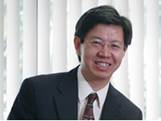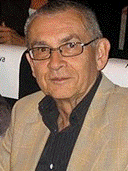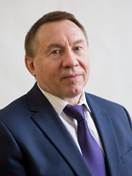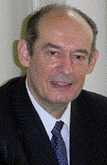Conference Keynote Speakers
FROM INFORMATICS TO INTELLIGENCE: BIOINFORMATICS, BIOENGINEERING, AND BRAIN SCIENCE
 Speaker: Prof. Matthew He
Speaker: Prof. Matthew He
Abstract. In recent scientific and technological advances, physical and biological, ecological and environmental, social and behavioral, cognitive sciences, engineering, and other emerging sciences, engineering and information technologies share a common need for efficient algorithms, system software, information systems and architecture, and efficient computing solutions to address large computational and interdisciplinary problems. Many boundaries among science, engineering and social systems are cross-linked in the face of combinations of knowledge and tools as demonstrated in the areas of computational mathematics, scientific computing, network computing, cloud computing, bio-molecular computing, quantum computing, soft computing, most recently perceptual computing. It is the time when the physical, biological and social sciences are joining forces with information computing sciences. It is the time when we will make extraordinary advances in the history of mankind through the field of scientific computing between artificial and biological intelligences. This talk provides the overview from informatics to intelligence with the following three sections:
- Bioinformatics and Informatics
- From Genetic Code to Life: Bioinformatics
- From Binary Code to Machine: Computing Sciences
- From Data to Knowledge: Intelligence
- Biomedical Engineering and Biotechnology
- From Pixels to Images: Medical Imaging
- From Genes to Drug: Biomedical Engineering
- From Proteins to Function: Proteomics
- Physical Biology, Brain Science, and Beyond
- From Atoms to Living Systems: Physical Biology
- From Neurons to Consciousness: Brain Science
- From Genes to Culture: New Sciences
Biography
Matthew He, Ph.D., Assistant Dean/Full Professor of the Halmos College of Natural Sciences and Oceanography of Nova Southeastern University (NSU) in Florida. From 2004 to 2015, Prof. He served as the Director of the Division of Math, Science, and Technology of Farquhar College of Arts and Sciences of the university. He has been a full professor and grand Ph.D. of the World Information Distributed University since 2004, as well as an academician of the European Academy of Informatization. He was a research associate at the Department of Mathematics, Eldgenossische Technische Hochschule, Zurich, Switzerland, and the Department of Mathematics and Theoretical Physics, Cambridge University, Cambridge, England. He was also a visiting professor at the National Key Research Lab of Computational Mathematics of the Chinese Academy of Science and the University of Rome, Italy.
Dr. Matthew He has authored/edited 10 books and published over 100 research papers in the areas of bioinformatics, computational biology and mathematics, non-rigid motion analysis, and information theory. He is an invited series editor of Biomedical and Life Sciences of Henry Stewart Talk on “Using Bioinformatics in Exploration in Genetic Diversity.” He is an editor of International Journal of Biological Systems, an editor of International Journal of Cognitive Informatics and Natural Intelligence, an editor of International Journal of Integrative Biology, and an editor of International Journal of Software Science and Computational Intelligence. He is the book editor of Advances in Bioinformatics and its Applications and a guest editor of a special issue of the Journal of Biological Systems of World Scientific Publishing in 2004. He is an Associate Editor of the Proceedings of the International Conference on Mathematics and Engineering Techniques in Medicine and Biological Sciences (2002, 2003, 2004, and 2010).
In 2014, Dr. He was inducted to the hall of fame of 65 Outstanding Overseas Chinese Scientists and selected to be on a stamp and stamp book collection by China Post Office for world-wide distribution with limited edition. In 2012, he received the First Robert Stempel College of Public Health Award in Biostatistics from Florida International University. He received the World Academy of Sciences Achievement Award in recognition of his research contributions in the field of computing in 2003 and 2010. He received Professor of the Year Award in Excellence of Teaching and Research in 2002 at NSU. He is a member of International Advisory Board of "International Symmetry Association (ISA). He is a member of American Mathematical Society, Association of Computing Machinery, IEEE Computer Society, and World Association of Science Engineering. He also serves a member of International Advisory Board of Bioinformatics Group of International Federation for Information Processing (IFIP). He has chaired number of International Conferences in the areas of Bioinformatics Research and Applications. Alongside with scientific activity the academician Matthew He co-founded Chinese Association of Science, Economics, and Culture of South Florida in 1994 and served as the executive director of Chinese Contemporary Schools in South Florida from 1995 to 2005. Dr. Matthew He serves as a member of board directors of many international associations, keynote speakers of many international conferences in math, information sciences, bioinformatics, biomedical sciences and bioengineering, and is actively involved in promoting science, education, and technology.
COGNITIVE NETWORKS: BRAINS, INTERNET, AND CIVILIZATIONS
 Speaker: Prof. Yuri I. Manin
Speaker: Prof. Yuri I. Manin
Abstract. This talk discusses some basic features of cognitive activity at several different space/time scales: from from Internet and neural networks in the brain to civilizations. One motivation for such comparative study is its heuristic value. Attempts to better understand the functioning of complexes involved in cognitive activities of central nervous system by comparing it with a computing device have a long tradition. We suggest that comparison with Internet might be more adequate. We briefly touch upon such subjects as encoding, compression, and Saussurian trichotomy langue/langage/parole in various environments.
Biography
Yuri Ivanovich Manin, a Professor at the Max-Planck-Institut für Mathematik in Germany, and a professor at Northwestern University in USA. He is an outstanding Soviet/Russian/German mathematician, known for work in algebraic geometry and diophantine geometry, and many expository works ranging from mathematical logic and quantum informatics to theoretical physics. Moreover, Manin was the first to propose a quantum computer in 1980 with his book "Computable and Uncomputable".
Current employments: Professor Emeritus, Max-Planck-Institut fur Mathematik, Bonn, Germany (director of this Institute from 1995 till 2005),
Board of Trustees Professor Emeritus, Northwestern University, Evanston, USA.
Principal Researcher in absentia, Steklov Math. Institute, Academy of Sciences, Russia, Moscow.
Selected honors and awards: Moscow Mathematical Society Award, 1963; Highest USSR National Prize (Lenin Prize) for work in Algebraic Geometry, 1967; Brouwer Gold Medal for work in Number Theory, Netherlands Royal Society and Mathematical Society, 1987; Frederic Esser Nemmers Prize in Mathematics, Northwestern University, USA, 1994; Rolf Schock Prize in Mathematics of the Swedish Royal Academy of Sciences, Sweden, 1999; King Faisal International Prize for Mathematics, Saudi Arabia, 2002; Georg Cantor Medal of the German Mathematical Society, 2002; Order Pour le Merite, Germany, 2007; Great Cross of Merit with Star, Germany, 2008; Janos Bolyai International Mathematical Prize, Hungarian Academy of Sciences, 2010.
Elected Membership in Scientific Academies: Corresponding Member, Academy of Sciences, Russia, 1990; Foreign Member, Royal Academy of Sciences, the Netherlands, 1990; Member, Academia Europaea, 1993; Member, Max-Planck-Society for Scientific Research, Germany, 1993; Corresponding Member, Gottingen Academy of Sciences, Class of Physics and Mathematics, 1996; Member, Pontifical Academy of Sciences, Vatican, 1996; Member, German National Academy of Sciences (Academia Leopoldina), 2000; Fellow, American Academy of Arts and Sciences, 2004; Foreign Member, Academie des sciences de l'Institut de France, 2005.
Honorary degrees: Doctor Honoris Causa, Sorbonne (Universit_e Pierre et Marie Curie, Paris VI), 1999; Abel Bicentennial Doctor Phil. Honoris Causa, University of Oslo, 2002; Doctor Honoris Causa, University of Warwick, 2006; Honorary Member, London Mathematical Society, 2011.
See additional information at
https://en.wikipedia.org/wiki/Yuri_Manin, http://www.hcm.uni-bonn.de/people/profile/yuri-ivanovich-manin/ .
INTELLIGENT INTERNET TECHNOLOGY FOR PERSONALIZED HEALTH-SAVING SUPPORT
 Speaker: Prof. Vyacheslav N. Krutko
Speaker: Prof. Vyacheslav N. Krutko
Abstract. Multifactorial nature of human health and need in personifying the approach to each person leads to the fact that full implementation of healthy life style (HLS) technologies is possible only on the basis of artificial intelligence technologies, widely implemented in the preventive medicine via modern Internet technologies. Modern computer systems allow considering simultaneously big data of separate factors in health assessing and selecting of individualized recommendations for personal HLS. This article presents a concept and a structure of intelligent Internet technology for personalized health-saving support, which allow assessing health and preparing individual optimal recommenda-tions for HLS.
Biography
Vyacheslav N. Krutko is a famous specialist in problems of anti-aging medicine, gerontology, mathematical and computer modeling of biological systems.
Current employments: Head of Laboratory of Systems Analysis and Information Technologies in Medicine and Ecology on the base of the Russian Academy of Sciences Institute for Systems Analysis (from 2015 - on the base of the Federal Research Center “Computer Science and Control” of Russian Academy of Sciences); Professor, I.M. Sechenov First Moscow State Medical University (Preventive Medicine Department); Director General, National Gerontology Center (Russia).
Awards: 2007 - Diploma of the Winner of Moscow Competition “The Best Projects for Moscow & Muscovite’s Health”; 1997-2003 - Winner of the personal State scientific grants; 1994 - Diploma of Professor, Chair of Informatics and Control of Public Health Protection; 1994 - Diploma of "The Winner of the All-Russia Competition on the best concept of Russia’s transition to sustainable development"; 1993 – 2001 – Winner of the team scientific grants from:
- Russian Federation Ministry of Science and Technology
- Russian Federation Ministry of Ecology
- The US Institute of Sustainable Communities
- The International Soros Foundation.
Principal Investigator of the following National Projects: Health Effects of Moscow Vegetable Supply System;Informatics Tools of Assessment of Public Health Dynamics Under Global Climatic Changes; Systems Analysis of Factors Influencing Public Health in Moscow; Analysis of Factors Determining Public Health in Different Regions of Russia; Health Forecast Under Expected Environmental Changes; Principal Investigator of the National Project "Education" grant: Development of a family of virtual instruments and teaching materials for a new form of education, 2008; Principal Investigator of the Ministry of Education and Science of Russia grant “Development of Internet technology for personalized support of a health-saving”, 2015.
Main research field: anti-aging medicine, geroprophylaxis, means of life span prolongation, Systems Mechanisms and Models of Aging, Mathematical Base of Gerontology, Senescence Prophylaxis, Aging: The Mechanisms and Retardation Ways, Analysis and Use of Biological Age, Active Longevity, Аgeing prevention, Reguvenation, Retardation of aging, longevity therapeutics, Healthy Aging, Life extension, mechanisms of aging, aging modeling, estimation and forecasting of biologic age and life expectancy, computer systems for diagnostics and prophylaxis of aging.
See additional information at
http://ngcrussia.org/HOME_e.htm ,
http://ngcrussia.org/director_e%20.htm .
THE GENETIC CODING, UNITED-HYPERCOMPLEX NUMBERS AND ARTIFICIAL INTELLIGENCE
 Speaker: Prof. Sergey V. Petoukhov
Speaker: Prof. Sergey V. Petoukhov
Abstract. Scientists try to reproduce in devices of artificial intelligence intellectual properties of living organisms, which are connected with the genetic code system. This lecture is devoted to the study and modeling of the genetic system on the basis of mathematical formalisms, which are used in digital devices of artificial intelligence and technology of noise-immunity coding of information. The genetic code of amino acid sequences in proteins does not allow understanding and modeling of inherited processes such as inborn coordinated motions of living bodies, innate principles of sensory information processing, quasi-holographic properties, etc. To be able to model these phenomena, the concept of geno-logical coding, which is connected with logical functions and Boolean algebra, is put forward. Structured alphabets of DNA in their matrix form of representations are connected with dyadic groups of binary numbers and a new type of systems of multidimensional numbers. This type generalizes systems of complex numbers and hypercomplex numbers, which serve as the basis of mathematical natural sciences and many technologies. The new systems are called in a general case as “systems of united-hypercomplex numbers”. They can be widely used in models of multi-parametrical systems in the field of algebraic biology, artificial life, devices of biological inspired artificial intelligence, etc.
Biography
Sergey V. Petoukhov is a famous specialist in bioinformatics, biomechanics, theory of symmetries, mathematical and theoretical biology.
Current employments: Head of Laboratory of biomechanical systems research in Mechanical Engineering Research Institute of the Russian Academy of Sciences; Chief researcher of the “Center of interdisciplinary researches of musical creativity” of the Moscow State Conservatory by P.I. Tchaikovsky; Editor-in-Chief of “International Journal of Mathematical Sciences and Computing” (Hong Kong).
Selected honors and awards: Laureate of the State prize of the USSR; Academician of the Academy of Quality Problems (Russia, from 2000); Grand Doctor of Philosophy, Full Professor (The European Academy of Informatization, Belgium, 2004); the Chinese government has included S.V. Petoukhov in the «List of Outstanding Scientists in the World» in 2012; Chairman of Advisory Board of «International Symmetry Association», Budapest, Hungary, from 2003 till now; Honorary chairman of Board Directors of «International Society of Symmetry in Bioinformatics», USA, 2005; co-leader of long-term scientific cooperation between Russian and Hungarian Academies of Sciences in the theme «Non-linear models and symmetrological analysis in biomechanics, bioinformatics and theory of self-organizing systems»; Scientific supervisor and main contractor for competitive state contracts on bioinformatics in 2009-2011; Vice-Chair of the International Advisory Board Directors of the Research Association of Modern Education and Computer Science (Hong Kong) from 2016; scholarship for scientific internship in Germany from the German Academic Exchange Service (DAAD, 2017).
Main research field: bioinformatics, biomechanics, theory of symmetries, matrix analysis, self-organizing systems, and theoretical biology.
See additional information at http://petoukhov.com/ .
